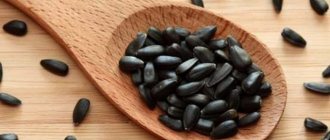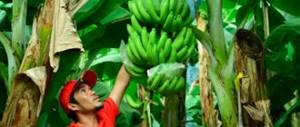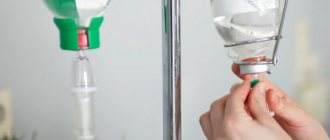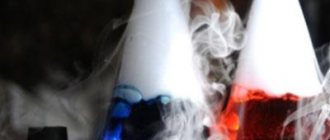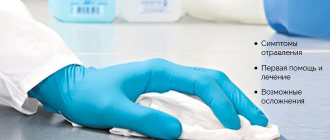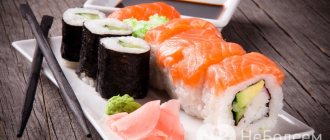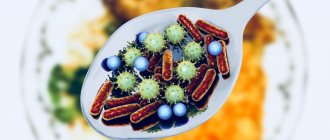Zucchini is a tasty and healthy vegetable that is widely used in cooking. Zucchini dishes are popular among people watching their weight and adhering to healthy eating principles, as they are healthy and low in calories.
Source: depositphotos.com
Zucchini carbohydrates have a low glycemic index, so this vegetable is recommended for consumption by people suffering from any type of diabetes.
Zucchini puree is recommended as one of the first complementary foods for children in their first year of life, as it is easily absorbed by their bodies and almost never causes allergic reactions.
When eating low-quality zucchini or dishes made from them, a person may develop poisoning.
The benefits of zucchini
People discovered the nutritional and beneficial properties of zucchini many years ago. It is an excellent assistant in diets, as it contains only 30 kilocalories per 100 grams of its mass. In addition, zucchini is hypoallergenic and easily digestible, capable of stimulating motor function without irritating the gastric mucosa.
Zucchini pulp contains a lot of useful microelements, such as Cu, Ka, Mg, sodium, P, Fe. It also contains vitamins C, PP, A and group B. This vegetable is rich in healthy proteins of plant-natural origin. Pectins can help get rid of excess cholesterol, as they also help improve the absorption of nutrients.
This product contains large quantities of vitamin C, as well as carotene, which suggests that when properly prepared it retains its beneficial properties and can have a binding effect on the human body. It is able to stimulate the kidneys, while having a good diuretic effect, which helps normalize renal function, salt and water balance, as well as blood purification.
If this vegetable is consumed on a regular basis, the intestines will work like clockwork. The positive effect of such a diet is noted on the vascular-cardiac and immune systems.
Recommended Products
For both adults and children, the diet for food poisoning prescribes taking easily digestible food, which, moreover, will not mechanically injure the gastrointestinal tract:
- slimy soup;
- cream soup;
- mashed boiled vegetables;
- boiled meat, fish;
- eggs in a bag;
- omelette without oil;
- cottage cheese (low-fat, non-sour);
- fresh dairy products;
- liquid, well-cooked porridge with water or milk;
- jelly, jelly;
- weak tea.
Causes of intoxication
A pathological similar condition can occur in three situations:
- in case of human intoxication with pickled zucchini;
- in case of poisoning when fried;
- in case of poisoning with a vegetable that contains nitrate.
If a couple of the reasons mentioned above can only depend on the person preparing the dish, and they can be easily prevented, then nitrate intoxication is subject to constant control by the user.
The severity of intoxication symptoms depends directly on the level of food contamination. The intoxication process can develop in the first 30 minutes after eating the product, and will increase if first aid is not provided. Differences in age, the condition of the human body, as well as the concentration of toxins in products cause symptoms to manifest differently.
Victims often complain of loss of appetite and chills, severe nausea and weakness. The sclera and skin jaundice are observed if the liver is damaged. Repeated diarrhea, as well as an increase in temperature, manifested in dysentery.
Wolfsbane poisoning
Manifested by the following symptoms:
- pain in the stomach area;
- tremors in the legs and arms;
- convulsions;
- severe fatigue;
- flow of saliva.
The most dangerous form of intoxication is botulism. This pathology progresses when eating preserved zucchini. After a couple of hours, patients experience double vision of objects in their eyes, as well as neurological disorders. Instability of the functioning of the respiratory tract progresses with an increase in the number of symptoms.
Compliance with agricultural technology rules
Long-term lack of watering accumulates nitrates in zucchini, which gives it a bitter taste.
A spray installation that creates a fog effect allows you to water large areas and saves gardeners’ labor costs. Zucchini is a moderately moisture-loving plant. But they react very sharply to drought. Long-term restriction of watering provokes the accumulation of nitrates in plants, which impart bitterness to the fruits.
In order to prevent temperature shock in hot weather, it is necessary not only to water the bushes at the root, but also to irrigate the green part of the plant.
With a lack of moisture, the bitter taste of zucchini is aggravated. However, overwatering has the same effect.
In addition, waterlogged soil and tops are a favorable environment for the proliferation of fungal microflora. You need to water zucchini regularly, moderately and on time.
The taste of zucchini depends on the length of daylight. The less sunlight a plant receives, the more likely it is to produce cucurbitacin. This is especially noticeable at the end of summer, when daylight hours are noticeably reduced. Therefore, it is recommended to plant zucchini in well-lit areas that are not shaded by other crops. The optimal distance between the plants themselves in the garden bed is 75 cm.
It is necessary to regularly pinch overgrown tops, remove weeds and thin out plantings. At the other extreme, prolonged exposure to the sun also negatively affects the taste of zucchini.
Nitrate vegetables
Growing plants near highways and highways, as well as in areas that are close to toxic industries, has a negative impact on their safety for the human body.
Such a product is capable of accumulating many salts of heavy metals. Most fertilizers, which unscrupulous farmers are able to sprinkle on their farms in enormous quantities, also have a similar effect.
Nitrates are present in unreasonable quantities in various vegetables and fruits, and zucchini is no exception. How can they get there? Is there a chance of squash poisoning if it contains nitrates?
Most often, they are added to vegetables to maintain marketability and increase the speed of their cultivation. There are certain content standards, the excess of which can cause severe poisoning. In order to reduce this toxic effect, you need to follow these rules:
- Harvest on time, and not wait until the products contain overripe huge seeds, because... the usefulness of the product in such a case will decrease significantly, in contrast to its harmfulness, which, on the contrary, will increase tenfold.
- The growth of this vegetable should occur naturally, without the use of stimulants.
- You need to grow zucchini yourself using the classic method.
- If there is any way to check the nitrate content using a specific device, do not eat zucchini, where there is a high concentration of them, especially vegetables that taste bitter, you need to use it.
It is necessary to avoid eating vegetables that contain a lot of nitrates, which can lead to severe intoxication of toxic systems and organs.
Symptoms of nitrate poisoning
- very low blood pressure;
- lack of coordination;
- cyanosis of the skin on the lips and nail bed due to hypoxia;
- diarrhea, which is accompanied by terrible vomiting and nausea;
- terrible headaches that experts associate with oxygen starvation;
- terrible fatigue and craving for sleep;
- pain in the stomach area.
There are also some other symptoms:
Peanut poisoning
- blue discoloration of all mucous membranes and lips;
- tachycardia;
- blueness of the nail ridges;
- dyspnea;
- in especially severe cases - convulsions and coma.
Compliance with the principles of crop rotation
If zucchini is adjacent to pumpkins, cross-pollination occurs, which does not exclude the transfer of a corresponding dose of bitterness to the zucchini. If these crops have to be grown in the same garden, it is recommended to plant them at a maximum distance from each other (at least 15 m). This requirement is especially relevant for decorative inedible types of pumpkin.
The close proximity of crops such as onions, dill, parsley stimulates the growth of zucchini. Corn growing between the beds protects zucchini from overheating, and peas repel pests. In addition, during the growth process, peas contribute to the accumulation of nitrogen in the soil, necessary for the normal development of zucchini.
Compliance with crop rotation prevents the transmission of diseases that contribute to changes in the consumer and taste qualities of fruits. The best predecessors for zucchini:
- nightshades (potatoes, tomatoes);
- cruciferous vegetables (cabbage, beets, carrots);
- legumes;
- green crops.
You cannot plant zucchini in the same bed for two years in a row. Bad predecessors include all representatives of pumpkin plants - cucumbers, squash, pumpkins, melons, watermelons.
Fried and pickled zucchini
Such dishes are often pickles and marinades, which can be found in almost any cellar, in the basement of a dacha, or in the pantry of a thrifty housewife. It also happens that the established cooking process is disrupted for some reason or a person might be treated to an obscene quality vegetable while visiting.
Causes of intoxication from fried zucchini:
- Vegetables that have been fried were purchased already expired or rotten.
- During the cooking process, overcooked oil was used, which contains a striking concentration of hazardous substances.
- The product, which was prepared by the hostess, had been preserved in the refrigerator for too long and had already begun to spoil.
The likelihood of intoxication with pickled zucchini increases when:
- Violation of product processing techniques, as well as non-compliance with sterility.
- Exploitation of nitrate vegetables for preservation.
- A striking concentration of various preservatives and vinegar in marinades.
It becomes clear that when eating zucchini in the form of pickled and fried, there is a huge chance of poisoning.
In this case, the following symptoms progress:
- nausea is replaced by vomiting and diarrhea;
- the temperature rises;
- the patient is lethargic and sluggish;
- shortness of breath, cardiac arrhythmia;
- pain appears throughout the entire area of the abdomen;
- drowsiness appears;
- dehydration progresses at tremendous speed;
- changes were noted in organs such as the lungs and heart.
The severity of symptoms depends on the level of intoxication, the time of initiation of therapy and the amount of poisons that entered the blood.
Butulism is one of the types of squash intoxication. This toxic-infectious disease is incredibly dangerous due to its damaging effect on the nervous system. It will appear a couple of hours after eating zucchini, already infected with certain neurological disorders, dizziness, double vision and, in severe cases, oxygen deficiency.
What follows after visiting a doctor?
When contacting doctors, you need to be prepared to provide the remaining zucchini after poisoning for laboratory testing. That is, you should not get rid of the remnants of the dish that caused the eating disorder. Leftover food is examined in the laboratory for the presence of botulism, other pathogenic intestinal bacteria, fertilizer residues and chemical toxicants.
Without such a study, it is quite difficult to identify the true nature of intoxication. Moreover, collecting tests and studying them will take a lot of time, which, in turn, means a delay in starting treatment.
Of course, in addition to studying the food remains that caused intoxication, other diagnostic procedures are carried out:
- general tests of stool, urine and blood;
- bacteriological examination of the contents of vomit and feces;
- studies of cerebrospinal fluid, that is, cerebrospinal fluid, if the development of botulism is suspected and it is impossible to detect the presence of the pathogen in other ways.
Of course, not every intestinal pathogenesis requires visiting a medical facility. If the symptoms of a digestive disorder do not indicate the presence of a bacterial pathogen or specific toxic substances that have entered vegetables from the external environment, you can cope with the disease yourself.
First aid
Primary aid provided in a timely and correct manner can greatly alleviate the condition of the victim even before the ambulance arrives. If symptoms of poisoning are detected, the following actions must be taken:
- Carry out gastric lavage using antiseptics or lightly in salt water.
- Provide intake of an absorbent such as Enterosgel or activated carbon.
- It is also recommended to do a couple of enemas, which will help remove various toxins from the intestines.
- Give the patient Regidron, sweet tea, salted or alkaline solutions in large quantities.
- If you feel worse, call a specialist immediately.
Often, with zucchini intoxication, correctly provided primary care can quickly lead to the progress of the patient’s condition, and therefore he no longer needs doctors. However, there are a number of situations in which you should still contact a doctor:
- a pregnant woman, a baby or an elderly person was poisoned;
- in the presence of severe pain in the stomach area;
- weakened shallow breathing;
- symptoms of intoxication persist for more than a couple of days;
- the amount of urine excreted decreases with lightning speed and turns into a rich darkish color;
- visual impairment.
Therapy for any type of intoxication must begin with rapid detoxification therapy, as well as measures to restore the disturbed electrolyte-water balance. Etiotropic therapy is also carried out, which affects the cause that caused the poisoning. Thus, if intoxication was caused by salts of heavy metals, an antidote called unithiol is administered.
The initial most important stages of therapy begin to be carried out at home, but it is not advisable to continue it at home indefinitely.
If the state of health has worsened, the patient should trust the professionals that in a hospital setting, if necessary, using a wide range of drugs, they will be able to easily cope with the problems. You should not refuse to go to the hospital, especially if you are talking about a child, since intoxication can be fatal for them.
How to treat?
In the event that the cause of poisoning is not nitrates, bacteria or other toxic substances, intoxication therapy is no different from the treatment of any digestive disorder.
As first, immediate assistance to the victim, you need to take the following actions:
- Rinse the stomach with boiled warm water or a weak solution of potassium permanganate.
- Give sorbents; the best option is activated carbon.
- Provide the patient with rest, fluids and free access to the toilet.
In addition to activated carbon, drugs such as Filtrum or Smecta can cope with the symptoms of food poisoning.
Among folk remedies that promote rapid restoration of the functions of the digestive system after intestinal disorders, the most effective are infusions of the following herbs:
- plantain;
- blooming Sally;
- chamomile;
- dill;
- yarrow.
These are plants that are beneficial for the stomach and intestines, quickly eliminating pain symptoms accompanying food poisoning and establishing the normal functionality of the body.
The main element of home treatment is compliance with dietary restrictions. Fried foods, heavy foods and spices should be completely avoided. You should also not eat fresh fruits and vegetables, baked goods and confectionery. You should not indulge in fried foods for another week after recovery. On the first day after poisoning, it is better to completely abstain from food, starting to eat little by little from the second day after the onset of intoxication.
Video: zucchini - benefits and harm.
Prevention
In order not to become intoxicated from zucchini, you need to be wary of buying them. In order to minimize the likelihood of poisoning, you need to follow some rules:
- Ideally, you can grow zucchini yourself at home in your garden, especially if you plan to use this product to feed babies.
- Buy vegetables, especially those intended for feeding babies, only at verified points of sale: from familiar traders or at farmers' markets.
- You need to wash the vegetables well under running water before starting cooking, or scald them with boiling water, which will be even better.
- Carefully follow the sanitary rules, and more specifically, the sterilization regime, when preparing canned food from the product.
- Observe all principles and terms of preservation when storing finished squash products, do not keep them in open containers.
- Do not use products whose lifespan has expired.
Zucchini is considered one of the healthiest vegetables and its presence in the diet will help make nutrition higher quality and more balanced, and following the simplest rules for processing and choosing this vegetable can help avoid the risk of intoxication, as well as digestive system disorders.
How to avoid poisoning?
In order to avoid zucchini poisoning, you should refrain from purchasing vegetables from hand, in markets and in spontaneous retail outlets. This needs to be done, since it is impossible to find out exactly what fertilizers were used when growing food and in what place the crop was harvested.
Of course, you should not eat canned vegetables that have expired, from cans that are swollen, deformed, or otherwise damaged. You should also not eat homemade canned goods purchased second-hand from strangers. There is also no need to prepare dishes from vegetables that have begun to spoil.
The easiest way to determine the quality of zucchini before cooking is to sample the pulp. In order to understand whether a vegetable is bitter or not, it is enough to hold a small piece in your mouth. If the zucchini is bitter, then either it should not be cooked, or it should be soaked first.
Symptoms
Poisoning with bitter zucchini is manifested by nausea, changes in taste, and stomach cramps. Botulinum toxin poisoning is considered especially dangerous when consuming pickled zucchini that has expired. Due to an infectious disease, symptoms characteristic of dysentery first appear: diarrhea, vomiting, dehydration. There are symptoms of general poisoning, for example, dizziness, loss of orientation, tremor.
Zucchini that has accumulated nitrates causes the following symptoms: nausea, drooling, pain in the right hypochondrium. When this vegetable is consumed in large quantities, central nervous system disorders, blood pressure surges, and headaches occur.
Prohibited Products
You should pay attention to the list of vegetables and fruits that the diet after poisoning, especially for a child, excludes from taking fresh:
- cucumbers;
- cabbage;
- zucchini;
- carrot;
- beet;
- onion;
- celery;
- peach;
- citrus;
- apricot;
- apple;
- plum;
- a pineapple;
- eggplant;
- pumpkin;
- raspberries; strawberry; currant; banana; avocado; grape; pear;
- potato.
All of the above products, at first glance, are light, it would seem that they are just what you need.
But low-calorie does not mean light. These vegetables and fruits contain a lot of fiber, which is difficult for the unhealthy to digest after stomach poisoning. The very first food for sick adults should be weak, not hot tea with white bread crackers. You can sweeten the tea a little. Next, you can take well-cooked vegetables without using broth. Weak chicken broth can be taken only three days after the condition improves, since a person’s appetite significantly improves at this time. It is important to cook chicken for broth without skin, as it is quite fatty.

